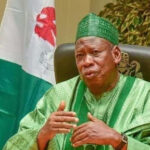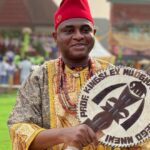As Nigerians go to the polls on Saturday, it is not clear if the voter turnout will surpass the average of 55.2 per cent recorded in the last five general elections since 1999.
Daily Trust investigations, through analysis of official records obtained from the website of the Independent National Electoral Commission (INEC) and other sources, revealed that only 52.3 per cent of registered voters voted in the 1999 elections.
The figures rose to 69.1 percent in 2003, then went down to 57.4 percent in 2011, 53.7 percent in 2011 and 43.6 percent in 2015.
Between 1999 and 2019, Nigeria’s registered voters rose from 57,938,945 to 84,004,084.
In 1999 polls, the South-South had the highest valid votes of 4,227,330, followed by North West 3,884,836, North Central 3,615,793, North East 3,552,353, South East 2,307,772, and South West 1,902,196.
In 2003 elections, the North West led with 9,643,772 valid votes, followed by the South-South 7,673,448, North East 6,237,877, North Central 5,739,206, South West 5,698,907, and South East 4,550,279.
During 2007 elections, the North West had the highest valid votes cast totalling 8,867,128; followed by the South South 6,770,546, North Central 6,494,860, South West 4,349,730, South East 3,673,274, and North East 3,114,413.
In 2011, the North West led other zones with the highest valid votes of 6,844,836, South South 6,197,404, North Central 5,052,348, South East 5,044,923, South West 4,553,999, and North East 4,814,167.
In 2015, the North West had the highest valid votes of 8,505,577, with the South South following with 4,667,879, South West 4,362,456, North Central 4,149,143, North East 3,672,348, and South East 2,719,654.
History of voters’ turnout
In 1999, there were 57,938,945 registered voters by INEC. However, the total votes cast was 30,280,052, representing 52.3 percent.
There were 29,848,441 valid votes and 431,611 invalid votes, representing 98.6 percent and 1.4 percent of the total votes cast respectively.
However, the voter turnout rose in 2003 to 69.1 per cent. That year, INEC had 60,823,022 registered voters, out of which 42,018,735 turned out and cast their votes with 39,480,489 valid votes and 2,538,246 invalid votes.
The turnout in 2003 represented an increase of 16.8 percent.
In 2007, available records showed that there were 61,566,648 registered voters by INEC out of which 35,419,262 voters, representing 57.4 per cent, were said to have been voted. This represented a drop in the voter turnout of 11.04 percent.
The voter turnout again dropped further to 53.7 percent in the 2011 presidential election when INEC had 73,528,040 registered voters, but only 39,469,484 of them turned out for the poll, with 38,209,978 valid votes and 1,259,506 invalid votes. This represented a drop of 4.36 percent.
The situation was the same in 2015 when only 29,432,083 voters, which was 43.6 percent out of the 67,422,005, registered voters turned out and cast their votes. That year, there were 28,587,564 valid votes and 844,519 invalid votes. The drop was 10.1 percent.
Will 2019 be different?
However, in 2019, with 84,004,084 registered voters, will the situation improve?
INEC has disclosed that there are over 20,000 candidates jostling for positions in the 2019 general elections, which is the highest ever recorded in the country’s election history.
Out of this figure, there are 73 presidential, 1,800 senatorial and 2,600 House of Representatives candidates vying to occupy the Number One seat in the country, the 109 senatorial districts and 360 federal constituencies. There are also 14,000 candidates vying for 991 state constituency seats.
Findings by this newspaper have shown that a total of 81 candidates contested for the number-one seat in the presidential polls held between 1999 and 2015, where Olusegun Obasanjo, Umaru Yar’adua, Goodluck Jonathan, and Muhammadu Buhari were elected as presidents.
No matter the number of candidates, it has always been a two-way race in all the elections. From 1999 to date, the candidates that matter have been the first two.
Only two candidates contested in the 1999 elections; 20 vied in 2003 polls, but the number rose to 25 in 2007, and down to 20 in 2011, and 14 in 2015, according to the official data.
Buhari is leading the league of serial presidential candidates, having contested four times only to coast to victory in 2015. Obasanjo contested twice and won, late Yar’adua contested once and won, and Jonathan contested twice and won once.
What experts say
The Executive Director of Civil Society Legislative Advocacy Centre (CISLAC), Auwal Musa Rafsanjani, told Daily Trust on telephone that although he believed the voter turnout may be up to 50 percent or more this time, a lot of factors would deter voters from coming out to vote.
First, he said, there are a lot of threats to the lives of voters, “especially with recent happenings around the country where violence has erupted in a number of places during and after campaigns.”
He said another factor that may make a lot of voters not to turn out for the polls was the fact that the political parties did not convince Nigerians about their programmes and policies if voted into power.

 Join Daily Trust WhatsApp Community For Quick Access To News and Happenings Around You.
Join Daily Trust WhatsApp Community For Quick Access To News and Happenings Around You.


